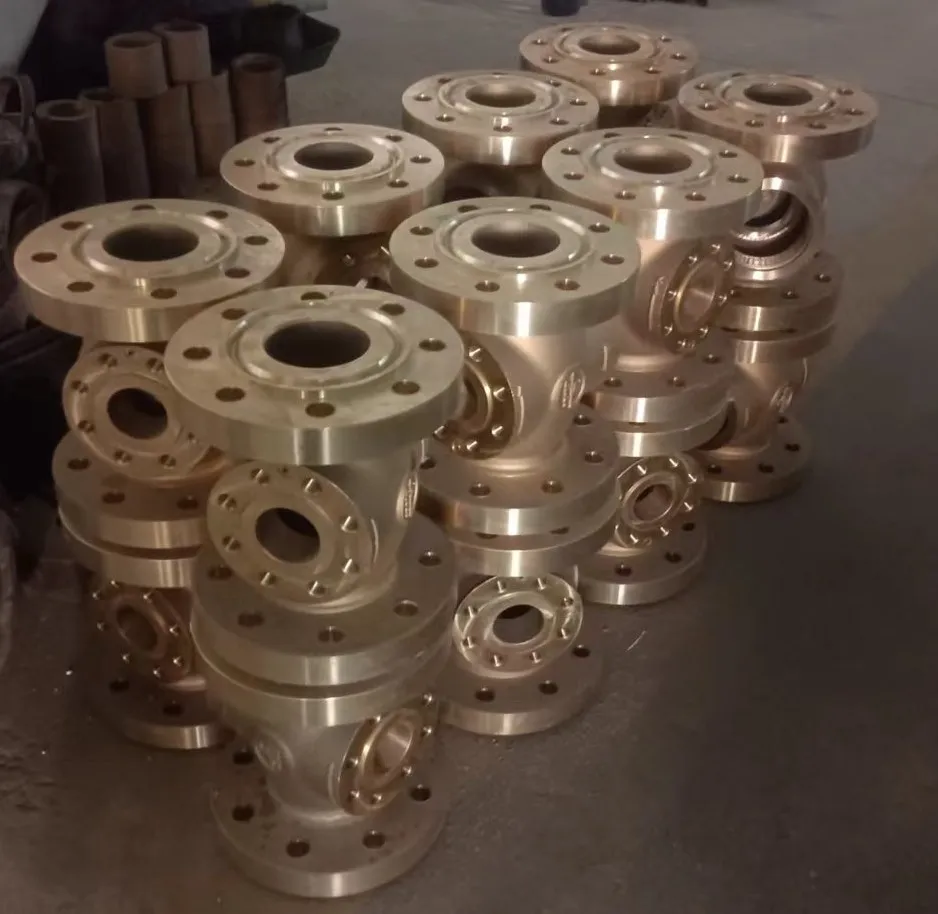Mobile:+86-311-808-126-83
Email:info@ydcastings.com
aluminum impeller
The Role of Aluminum Impellers in Modern Engineering
Aluminum impellers have become integral components in a wide range of engineering applications, particularly in the fields of aerospace, automotive, and marine engineering. Their unique properties make them an attractive choice for manufacturers looking to balance performance, weight, and cost-effectiveness in their designs.
One of the most significant advantages of aluminum impellers is their lightweight nature. Compared to traditional materials like steel or cast iron, aluminum offers a substantial reduction in weight without compromising strength. This attribute is particularly crucial in applications where minimizing weight can lead to improved fuel efficiency and enhanced performance. For instance, in aircraft engines, the use of aluminum impellers can contribute to overall weight savings, which directly influences payload capacity and fuel consumption.
In addition to being lightweight, aluminum impellers exhibit excellent corrosion resistance. This quality is particularly beneficial in harsh environments, such as those encountered in marine applications. Aluminum is less prone to corrosion compared to other metals, which extends the lifespan of impellers and reduces the need for frequent maintenance or replacement. This durability is a critical factor for manufacturers and operators who must consider the long-term reliability of their equipment.
aluminum impeller

Another important aspect of aluminum impellers is their ability to efficiently transfer energy. The design of an impeller, which includes factors such as blade shape and pitch, is crucial in determining how effectively it can move fluids or gases. Aluminum's inherent material properties allow for high-speed rotation, which enhances the performance of the impeller in applications ranging from HVAC systems to turbomachinery. The efficiency gained from using aluminum impellers can lead to significant energy savings, bolstering the sustainability of the systems they are a part of.
Moreover, aluminum impellers can be easily fabricated and machined to precise specifications. This flexibility is vital in modern manufacturing processes, where customization and rapid prototyping are increasingly important. Advances in technologies such as CNC machining and additive manufacturing have made it possible to produce complex impeller designs with a high degree of accuracy. This adaptability allows engineers to innovate and create impellers that meet specific performance requirements without the constraints often associated with other materials.
The performance of aluminum impellers can be further enhanced through various treatments and coatings. Anodizing, for instance, can increase surface hardness and improve wear resistance, making aluminum impellers even more suitable for demanding applications. Protective coatings can also provide additional benefits, such as further enhancing corrosion resistance or improving thermal properties.
In conclusion, aluminum impellers play a crucial role in modern engineering, offering a combination of lightweight construction, corrosion resistance, energy efficiency, and adaptability. As industries continue to seek ways to improve performance and sustainability, the relevance of aluminum impellers is likely to grow. Their unique properties position them as a key component in the design and manufacture of advanced machinery and equipment, ensuring they remain a vital part of engineering solutions for years to come. Whether in the sky, on the water, or in industrial applications, aluminum impellers exemplify how material choices can significantly impact technological advancement.
-
Valve Body Acts as the “Heart” of Flow ControlNewsMay.19,2025
-
Understanding the Importance of ImpellersNewsMay.19,2025
-
Importance of Automobile Water PumpsNewsMay.19,2025
-
How an Engine Oil Pan Works to Keep Your Car LubricatedNewsMay.19,2025
-
Common Materials Used in Pump Impeller ManufacturingNewsMay.19,2025
-
Ball Valve Casting in Modern Pipeline SystemsNewsMay.19,2025











